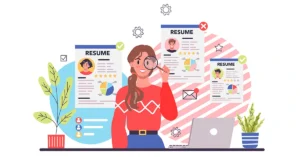Hiring a good intern can be one of the greatest achievements of your career. You have an extra hand to help with unfinished projects or tasks that other team members seem to be waiting for you to take the time to complete. Besides, you can absolutely spare a few extra hours each day to do the bigger things you always wanted.
And what if you end up hiring a bad intern? Just ask anyone who has ever made a hiring mistake like this, and the answer will be worse than you think!
However, reality shows that selecting quality interns is not easy, because most interns apply when they lack work experience, specialized knowledge and necessary skills.
What questions should you ask if you have no previous experience as an intern?
Just remember: The purpose of interviewing an intern is the same as interviewing a full-time candidate. You want to learn about the person’s abilities and skills, gauge their interest in the company, and see if they’d be a good fit for your department.
Here are a few questions based on different criteria to help you get an overview of what you need to do:
1. You want to know: Do they have the right skills and abilities?
A. Tell me about your coursework. How do they relate to this position?
No matter what school a candidate is in, there are certain benefits to having a degree that is relevant to the job. There are many ways to show this. For example, if you are looking for a PR internship, then candidates who have majored in Marketing, Public Relations, or have worked on industry-related projects during their time in school are a big plus.
However, there is no denying that certain subjects or activities can have indirect benefits for recruitment. For example, writing research papers, organizing events, managing time, and taking foreign language classes all require effective communication skills in a dynamic and diverse environment. By enabling candidates to clearly articulate these connections, you will have a more accurate view of choosing the most suitable intern.
B. Tell me about your volunteer or community work experiences.
Experiences in volunteering, planning school events or participating in clubs… are valuable in developing the skills needed for the job.
I once hired an intern who had no paid work experience, but whose resume was filled with impressive volunteer experiences. She had planned a three-year cancer research project on her campus (planning and leadership skills); worked at a local elementary school as a classroom leader; was treasurer for her sorority (top organizational and budgeting skills)…
Asking candidates to describe in detail what they learned and gained from such activities is a great way to determine what they can contribute in a professional work environment.
C. What skills do you want to gain from this internship and what skills can you contribute to us?
Sometimes, it’s a good idea to ask questions that get straight to the point. Candidates may have great skills that aren’t reflected in their coursework or school activities, so asking the two questions above in some cases won’t get you the most out of them. Also, some people know what areas of their career they need to gain experience in, and an internship at your company can help them do that.
In short, either way, look for and choose an intern who has really thought about what they can contribute and gain from the opportunity.
2. You want to know: Do they care about and like this company?
A. Why do you want to intern here?
Sometimes, all students need is an internship, so they will be willing to work at any company that will accept them.
However, the best candidates—those who can work hard and are excited to learn more about the industry and the job function—will apply because they love and appreciate your company’s mission or at least the things that are relevant to the job. Consider hiring people who are interested in staying with your department for the long haul.
B. What do you know about our company? Do you have any questions?
Just like any ongoing employee interview, you want to make sure your intern candidates are prepared with information. Ask a few questions that will help reveal how much knowledge they have about your company.
For example: Is there a project at the company that the candidate is most interested in? Is the candidate aware of the latest news about the company in the press? Also, give candidates the opportunity to ask questions about the company and the internship position, so you can see how serious and committed the candidate is about what they will be doing.
B. Tell me about your volunteer or community work experiences.
Experiences in volunteering, planning school events or participating in clubs… are valuable in developing the skills needed for work.
I once hired an intern who had no paid work experience, but whose resume was filled with impressive volunteer experiences. She had planned a three-year cancer research project on her campus (planning and leadership skills); worked at a local elementary school as a classroom leader; was treasurer for her sorority (top organizational and budgeting skills)…
Asking candidates to describe in detail what they learned and gained from such activities is a great way to determine what they can contribute in a professional work environment.
C. What skills do you want to gain from this internship and what skills can you contribute to us?
Sometimes, it’s a good idea to ask questions that get straight to the point. Candidates may have great skills that aren’t reflected in their coursework or school activities, so asking the two questions above in some cases won’t get you the most out of them. Also, some people know what areas of their career they need to gain experience in, and an internship at your company can help them do that.
In short, either way, look for and choose an intern who has really thought about what they can contribute and gain from the opportunity.
3. You want to know: Are they really the right choice?
A. What are your expectations?
Asking candidates about their expectations is the best way to determine if they truly understand the company and what their responsibilities will be if they are hired. Making sure that both you and the candidate are clear about the job duties, hours required, and salary (if applicable) is the first step in setting yourself up for success.
B. What do you know about this industry/field?
Your future intern will become a member of your department, and will obviously interact with colleagues, suppliers, and customers at some point.
Therefore, it is essential to ensure that any candidate selected is familiar with the basic terminology, the types of programs and procedures involved (if any), or at least is happy and comfortable learning about them. A candidate who has passed the background check, spends time reading books or blogs about the industry, and has a specific interest in the field of work will obviously be a better choice than someone who just tries to spread the word to every company.
C. What is your goal after graduation?
Learning about a candidate’s long-term goals can give you insight into where they want to be (and who they want to become). For example, if you’re hoping to transition your intern into a full-time role, saying they want to work in a high-capital investment bank might not be a good fit if your company is a nonprofit.
A candidate doesn’t have to be a perfect fit for a particular industry or position, but an internship can be a rewarding experience for both parties if it has some relevance to the major.
When using these open-ended questions, carefully consider the answers and ask for specific examples whenever possible. Don’t let yourself be swayed by candidates with little or no experience. Focus on your company’s needs, the practical skills each candidate possesses, and how they will fit into your current department. This will ensure a successful hire.
Hope you find new potential generations for work!




